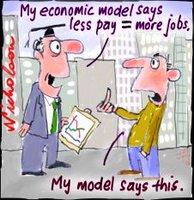 With the recent recognition bestowed upon Muhammed Yunus, founder of the micro-credit movement (The Noble Peace Prize 2006), micro-credit programs have been rolling at full speed as more and more governments and multi-lateral organizations are setting them up as cornerstone of their poverty reduction policies.
With the recent recognition bestowed upon Muhammed Yunus, founder of the micro-credit movement (The Noble Peace Prize 2006), micro-credit programs have been rolling at full speed as more and more governments and multi-lateral organizations are setting them up as cornerstone of their poverty reduction policies.
Of course, it goes without saying that this approach has also been targeted by critics that have pointed to the relationships between increase in income levels and poverty reduction which are not linear dynamics, given the fact that the determinants of poverty are also deeply rooted in structural problems. Moreover, the antagonistic positions between market-based development projects and state-led development programs have further influenced the capacity to implement reforms and policies to support effective national strategies, and stabilization of economies and financial sectors.
It is true that the challenges associated with poverty are far from being resolved, but only the fact that micro-credit provides a platform where the poor are guaranteed access to financial services is a way forward to tackle the hurdles vis-à-vis the provision of basic social services (i.e., health, education, among others), and improvements in human development, and capabilities (well-being, livelihoods and freedom to choose).
And it is only through proper reviews and assessments of cases and practices that policy-makers, and development practitioners will be able to gauge to the fullest the potentials and pitfalls that come with micro-credit enterprises.
*Cartoon: Courtesy of Nicholson Cartoons








